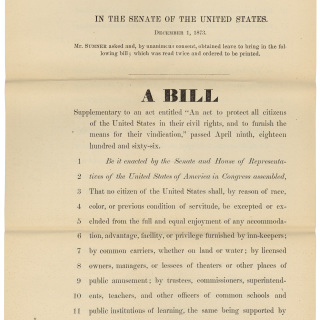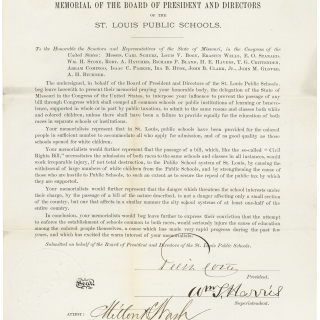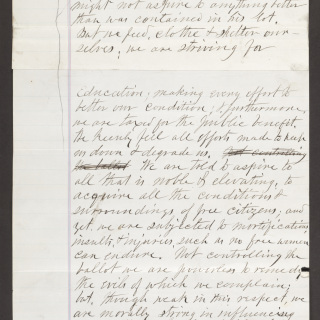Sumner Civil Rights Bill 1875
There was a great divide over how far the Government should go to enforce the rights established by the 14th and 15th Amendments. The 1875 Civil Rights Bill, first proposed by Senator Charles Sumner in 1870, was an attempt to codify those rights. Senator Sumner was the chief Radical Republican leader during Reconstruction and a vocal proponent of civil rights for freedmen. The bill that passed after much debate and revision in 1875 stated that all American citizens “shall be entitled to the full and equal enjoyment of the accommodations, advantages, facilities, and privileges of inns, public conveyances on land or water, theaters, and other places of public amusement.” Sumner, who died in 1874, did not live to celebrate the bill’s passage or to mourn its ultimate failure. In 1883, the U.S. Supreme Court ruled the Civil Rights Act of 1875 unconstitutional.


